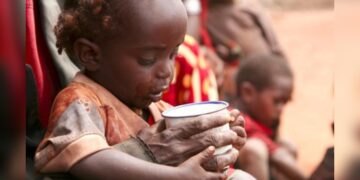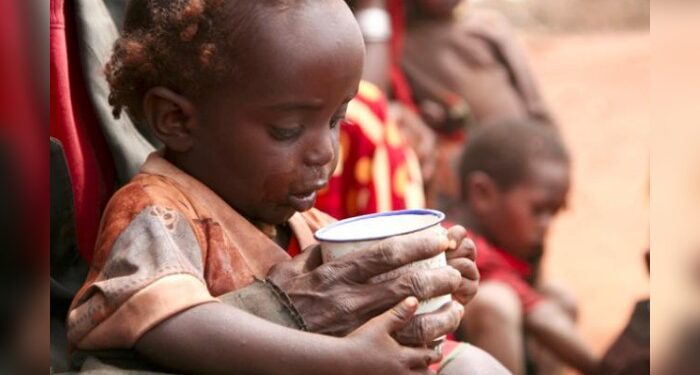By Enyichukwu Enemanna
The United Nations humanitarian agency has raised concern over imminent mass hunger and deaths in Nigeria’s Northeast region, arising from funding shortfall to combat food security in a region ravaged by more than one decade insurgency battle.
According to the resident coordinator of United Nations Office for the Coordination of Humanitarian Affairs (OCHA), Mohamed Malick Fall, despite an initial $11 million commitment from the Nigerian government and another $11 million from the UN’s central pool, the target has not been achieved, as a result of reluctance among international donors.
OCHA had launched a $306 million appeal alongside Nigerian authorities to provide succour to 2.8 million people in Borno, Adamawa and Yobe states, North East states of the country suffering devastating effects of Boko Haram insurgency that has lasted for 15 years.
“We are far from where we want to be. That is something we are confronted by even beyond the lean season which is that we have noticed that humanitarian assistance to Nigeria is shrinking,” Fall said in an interview on Thursday.
Heritage Times HT reports that foreign donations for humanitarian interventions to needy Nigerian communities have often been characterized by massive corruption, with top officials of government diverting such donations for personal use.
Affected communities are mostly left with little assistance despite huge foreign donations. The Covid-19 outbreak in 2020 exposed a cartel of corrupt government officials hoarding palliatives meant for needy homes. This led to looting of warehouses across the country, with several public infrastructure destroyed.
The OCHA coordinator is however hopeful of receiving only $300 million in the best-case scenario, a significant drop from the $500 million secured last year.
He attributed the decline to the economic impact of COVID-19 on major donors.
“Gaza, Ukraine, and Sudan have all emerged in the past two years which makes it difficult to maintain the same pace of funding,” Fall said.
OCHA warns of “catastrophic” consequences of food insecurity in Nigeria’s northeast without immediate intervention.
UNICEF data from April already shows more than 120,000 children admitted for treatment of severe acute malnutrition in the region, exceeding the entire year’s target of around 90,000.
“The cost of inaction has many folds with the most pressing being an excess mortality among children,” Fall said.




































